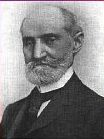Conium Maculatum The “Balm of Gilead” for diseases of old maids and women during and after climacteric.
Conium Maculatum Especially suited for diseases of old men; old maids; old bachelors; with rigid muscular fibre; persons with light hair who are easily excited; strong persons of sedentary habits.
Debility of old people; complaints caused by a blow or fall; cancerous and scrofulous persons with enlarged glands; rigid fibre.
No inclination for business or study; indolent, indifferent, takes no interest in anything.
Memory weak, unable to sustain any mental effort.
Morose; easily vexed; domineering, quarrelsome, scolds, will not bear contradiction ( Aurum ); excitement of any kind causes mental depression.
Dreads being alone, yet avoids society ( Kali carb., Lycopodium ).
Glandular induration of stony hardness; of mammae and testicles in persons of cancerous tendency; after bruises and injuries of glands (compare, Aster. rub. ).
Breasts sore, hard and painful before and during menstruation ( Lac caninum, Kali carb. ).
Vertigo: especially when lying down or turning in bed; moving the head slightly, or even the eyes; must keep the head perfectly still; on turning the head to the left ( Colocynthis ); of old people; with ovarian and uterine complaints.
Conium Maculatum Cough: in spasmodic paroxysms caused by dry spot in larynx (in throat, Actea ); with itching in chest and throat ( Iodium ); worse at night, when lying down, and during pregnancy ( Causticum, Kali br. ).
Great difficulty in voiding urine; flow intermits, then flows again; prostatic or uterine affections.
Menses: feeble, suppressed; too late, scanty, of short duration; with rash of small red pimples over body which ceases with the flow ( Dulcamara ); stopped by taking cold; by putting hands in cold water ( Lac d. ).
Conium Maculatum Leucorrhoea: ten days after menses ( Borax, Bovista ); acrid; bloody; milky; profuse; thick; intermits.
Bad effects: of suppressed sexual desire, or suppressed menses; non-gratification of sexual instinct, or from excessive indulgence.
Aversion to light without inflammation of eyes; worse from using eyes in artificial light; often the students’ remedy for night work; intense photophobia ( Psorinum ).
Sweat day and night, as soon as one sleeps, or even when closing the eyes ( Cinchona ).
Relations. – Patients requiring Conium often improve from wine or stimulants, though persons susceptible to Conium cannot take alcoholic stimulants when in health.
Compare: Arnica, Rhus in contusions; Arsenicum, Aster, in cancer; Calcarea, Psorinum in glandular swellings.
Is followed well: by, Psorinum in tumors of mammae with threatening malignancy.
Aggravation. – At night; lying down; turning or rising up, in bed; celibacy.


